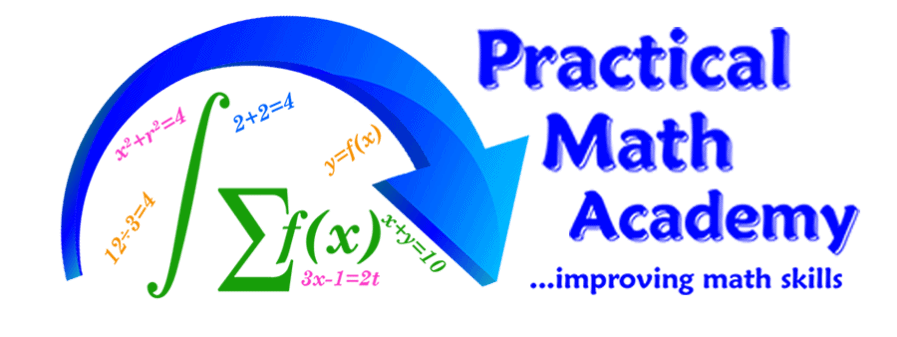7 Ways Physics and Chemistry Students Speak Math
By Maxwell Owolade
The subject of science is broad and so are its applications in the real world. For this reason, people who devote their education and careers to an area of the sciences become a crucial part of society.
There are endless ways the sciences have contributed to creating the present as we know it and it is up to new generations of scientists to enrich the future with discoveries and creations.
Science is the basis of many crucial parts of life and this necessity creates socio-economic wellbeing.
The World Needs Scientists!
When do you think of the things you cannot live without what comes to mind? If you are hungry it is probably food and I would like to point out that all of the food, you eat is the result of years of scientific studies.
To raise quality livestock their genetics must be understood and then fine-tuned to maximize their production. The produce we eat is oftentimes genetically modified as well, but even organic farming requires a geological understanding of the soil, a mechanical understanding of the harvesting machinery, and the biology of each plant species.
Even the processing and packing of food embraces microbiology to maintain a sanitized environment and this is only a few of the sciences engaged in food production. Science appears again in water purification, sleep, medicine, and pretty much anything else you can think of that is crucial to your life.
Every Student Can Become A Scientist
All of these advancements did not simply happen. They were developed by scientists who started exactly where you are right now, as a young student studying in biology, physics, and chemistry.
It was their interest in these topics that would later drive their developments in more specific fields of science. If you share that interest in the sciences, then you have probably seen that there is much more to science than fancy beakers and colorful chemical solutions.
In fact, much of science is practiced using numbers and math. This is because science is a universal topic and for scientists of different backgrounds from around the world to share their findings, they must use the universal language of math.
- Measurements
One of the most notable places math plays a role in science is in measurements.
Whether you are in chemistry measuring the amount of a liquid solution, in biology measuring the growth of an organism, or in physics measuring the force of an object there will always be numbers involved.
These numbers allow us to quantify information using universal units of measurement that are not open to interpretation like descriptive writing would be, and so these units of measurement are a basis of understanding science.
- Laboratory Work
The best research is well-recorded research because without notation of how a project was completed it cannot be replicated or proven accurate.
The best way to accurately notate experiments of any kind is to record both the process that was followed, and the results obtained universal and specific terms, otherwise known as numbers.
To say you only added a pinch of sodium could mean different things to different people, but 5 grams will be 5 grams no matter where it is measured.
- Statistical Observation
When conducting experiments in science the goal is often to find answers, but not all experiments come with clear cut answers. More often than not experiments end in a accumulation of data points that must be organized and understood. This is done through statistics and this for of mathematics provides an opportunity to assess the validity of scientific results.
- Understanding and Using Proven Laws
In science, there is a multitude of laws that got such a proud title because they can be proven and repeated with certainty. Charles law is one of these laws and despite being applied in science it is best explained through math.
Not only are most scientific laws best understood in a mathematical sense, but there are even formulas for many of them that use algebra to find the outcome when different variables are entered.
- Deductive Reasoning
Sometimes our understanding of a topic in science can be narrowed due to resources or population sizes. The answer to getting broader reaching results is based on the ability to create ratios, understand proportions, and determine percentages.
For example, saying 40 people of the 100 that were tested responded well to a new medication is lengthy and project specific. If you wanted to apply it to a broader audience you can make it a percentage and say 40% or 4 out of every 10 people who try the new medication are expected to respond well to it.
- Instrumentation
When working in a lab you are sure to find numbers on a variety of apparatuses needed to complete experiments. These numbers often signify things like the level of heat a hot plate will emit or the speed a machine will mix a solution at.
Even if the numbers on a machine seem simple, like level one two or three, they actually correlate to a specific heat output or rotations per second and are a factor of how an experiment played out the way it did.
There is an unfathomable amount of scientific machinery in the world and the basis of using each one is understanding its performance on a quantifiable scale of numbers.
- Displaying Results
One of the great joys of working in the sciences is sharing your findings with others so further improvements can be made and any beneficial results can be implemented.
Basic skills in math make visualizing results in the form of graphs possible in ways that express all of the data points collected. This turn results into one condensed image that is more comprehensible than a display of numbers.
Some of the greatest advancements of humankind are founded in the sciences and as our world continues to grow so does our need for technological improvements.
This need can only be met by the power of scientists collaborating around the globe and the very basis of that collaboration is founded in numbers.
Math classes and algebra problems can feel like menial tasks, but when you consider them in combination with science, they are highly beneficial skills.
It is deeply important to understand math because without math, there would be no science and without science, there would be no modernization.
Join Practical Math Academy Intensive Study Group on Facebook for genuine Math engagement and new updates




